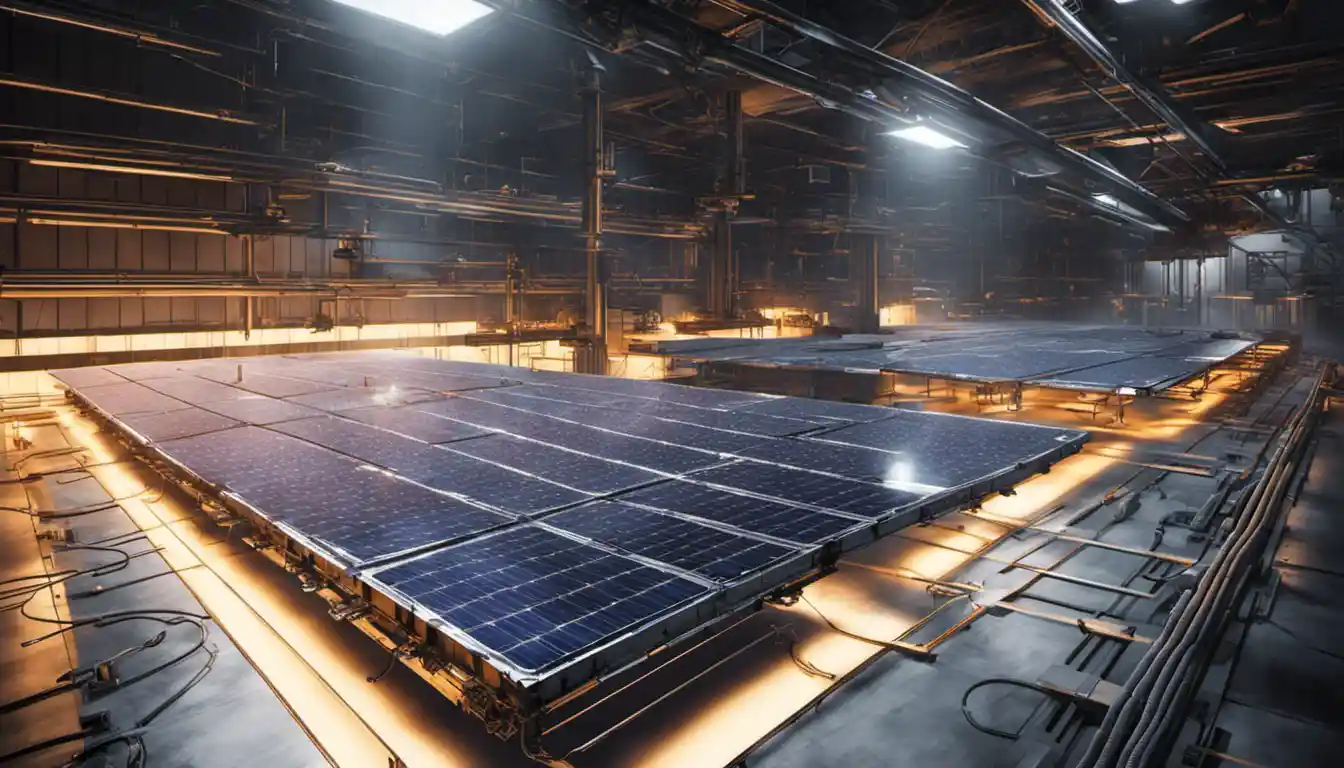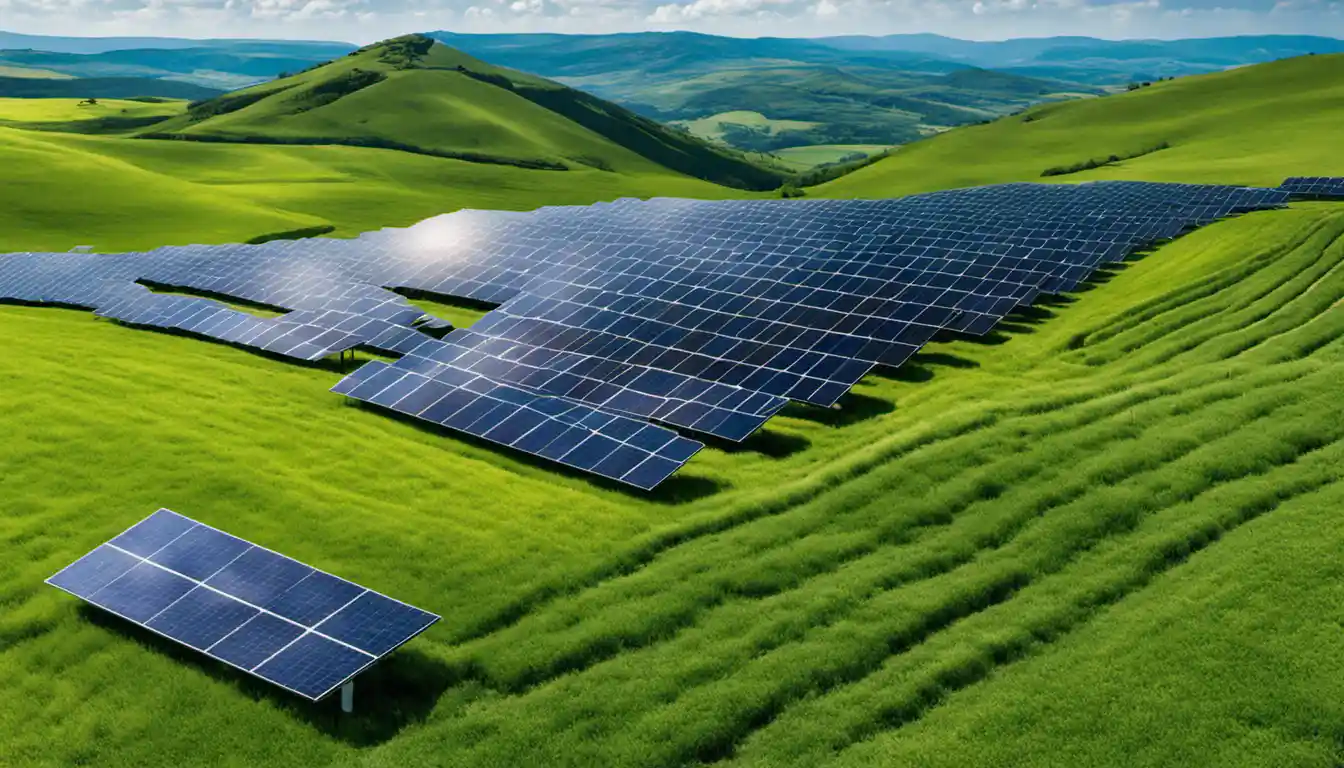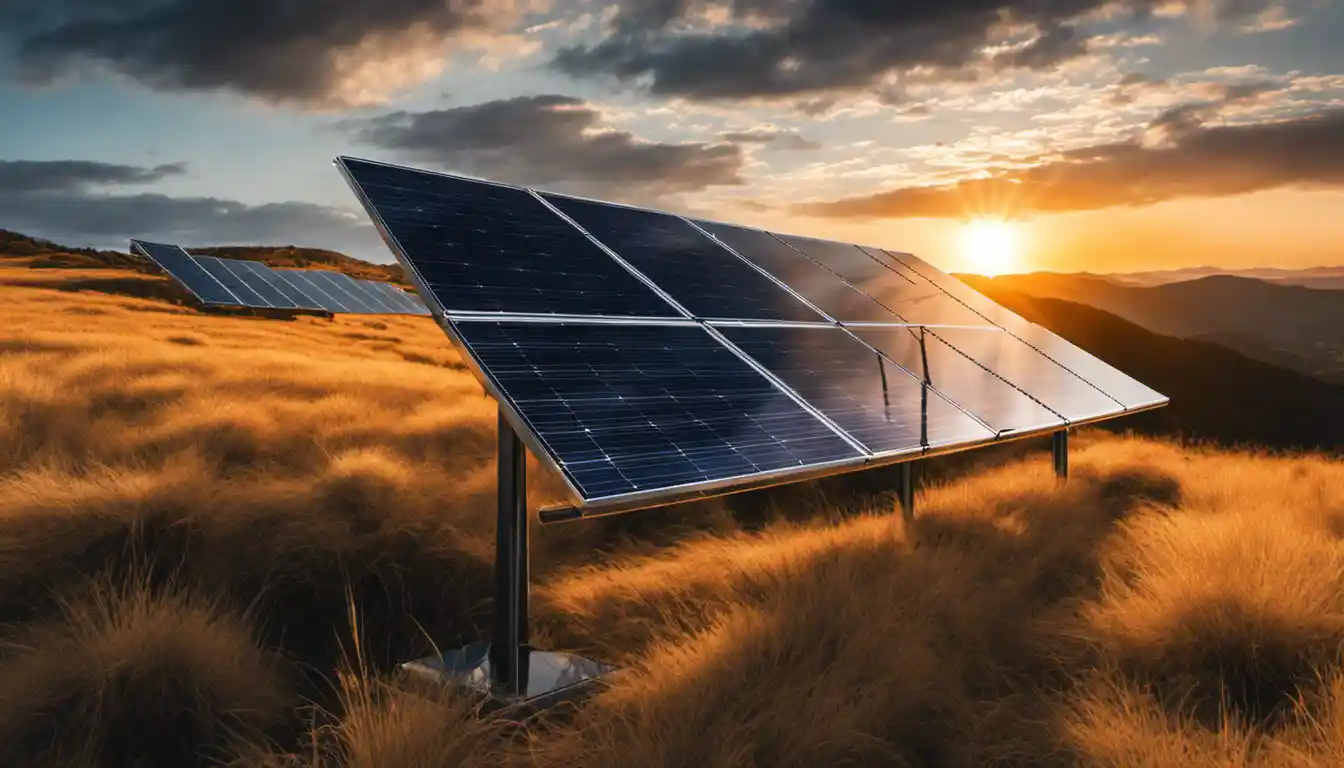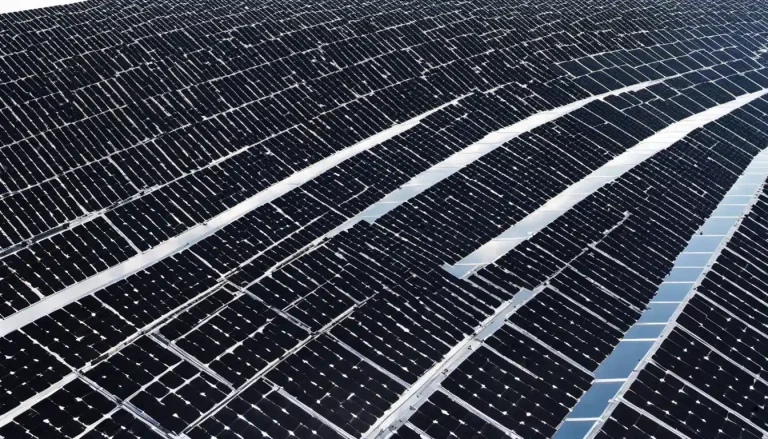Understanding Solar Panels
There are three main types of solar panels: monocrystalline, polycrystalline, and thin-film. Monocrystalline panels are made from a single crystal structure, offering high efficiency rates and longevity. Polycrystalline panels are produced from multiple crystal structures giving mid-range efficiency, whereas thin-film panels, produced by depositing photovoltaic material on a solid surface, have lower efficiency but are cheaper and more flexible in their application.
What is a Solar Panel?
Let’s start at the very beginning: what exactly is a solar panel? Simply put, a solar panel is a device that captures sunlight and converts it into electricity. Each solar panel is made up of solar cells, which work in harmony to generate electricity you can use in your home or business. It’s like having your very own mini power station on your roof!
See also: Solar Panels Grades A, B, and C (Explained)
How Solar Panels Work
Solar panels are no sorcery, they are pure science. They capture sunlight with photovoltaic cells, exciting electrons and producing a direct current (DC). The inverter then converts this into an alternating current (AC) which can be used in your home. Any excess energy produced can be sent back to the grid, or stored in batteries for later use.
See also: Can You Mix Mono and Poly Solar Panels?
Major Types of Solar Panels
If all you’ve ever asked yourself is “what types of solar panels are there,” well, you’re about to understand that on a whole new plane!
See also: Best Solar Panel For Cloudy Days (Low Light Weather)
Monocrystalline Solar Panels
Monocrystalline solar panels are the elder statesman of the solar world. Built from a single crystal structure, they offer the highest efficiency rates in the industry.
See also: Triangle Solar Panels (Are They Worth It)
Monocrystalline Solar Panel Design
Ever seen those sleek, black solar panels on roofs? Those are likely monocrystalline panels. The black hue is derived from the pure silicon used, which combines seamless aesthetics and excellent performance.
See also: Narrow Solar Panels (Types And Applications)
Monocrystalline Solar Panel Materials
These panels are made from silicon ingots, which are cylindrical in shape. The four sides are cut out of the ingots to make silicon wafers, which gives these panels their characteristic look.
See also: Solar Panels With An Outlet (Powered Plug Solutions)
Polycrystalline Solar Panels
Next on our list are the polycrystalline solar panels. These contenders offer a more affordable (yet a bit less efficient) alternative to their monocrystalline cousins.
See also: Is There a Solar Panel You Can Plug Into?
Polycrystalline Solar Panel Design
Distinctly recognisable by their blue hue, polycrystalline panels are cut from multifaceted silicon, resulting in a mosaic-like appearance.
See also: What is a Half Cut Solar Panel? Discovering the Advantages and Features of this Technology
Polycrystalline Solar Panel Materials

Polycrystalline panels are made by pouring raw silicon into a square mold, which is then cooled and cut into perfectly square wafers.
Thin-Film Solar Panels
For those taking a more economical route, thin-film solar panels offer affordable, versatile options. They deliver a slick aesthetic due to their thin nature, but they trade off efficiency for affordability and flexibility.
See also: Difference Between Mono and Mono Perc Solar Panel: An In-Depth Comparison
Thin-Film Solar Panel Design
Thin-film panels get their name from the thin photovoltaic material deposited onto a substrate. These are easiest to identify due to their thinness and uniform appearance.
See also: Crystalline vs Thin Film Solar Panels: A Comprehensive Comparison for Homeowners
Thin-Film Solar Panel Materials
Several materials can be used in the production of these panels, including Cadmium Telluride (CdTe), Amorphous Silicon (a-Si), and Copper Indium Gallium Selenide (CIGS).
Variations of Thin-Film Solar Panels
Think of thin-film solar panels as the umbrella term, under which a host of other types live, such as bifacial solar panels which capture sunlight from both sides.
See also: Monocrystalline vs Amorphous Solar Panels: A Comprehensive Comparison Guide
Cadmium Telluride (CdTe) Solar Panels
CdTe panels offer cost-effective solar solutions, with reduced manufacturing costs and faster production times. The catch is their lower efficiency and the use of Cadmium, a toxic heavy metal which could be an environmental issue if not properly managed.
See also: Pros and Cons of Monocrystalline Solar Panels: An In-depth Review and Guide
Amorphous Silicon (a-Si) Solar Panels
Amorphous Silicon (a-Si) panels, which you might have seen on pocket calculators, are a great choice if space is not an issue, as they have lower efficiency and hence, need more space.
See also: What are Thin Film Solar Panels? A Comprehensive Guide to the Future of Solar Energy
Copper Indium Gallium Selenide (CIGS) Solar Panels
CIGS panels offer a higher efficiency rate than their a-Si or CdTe counterparts, and they also happen to be the most expensive to produce.
See also: What are PERC Solar Panels? A Comprehensive Guide to Modern Energy Sources
Analysing Solar Panels
When it comes to determining “which type of solar panel is best,” you need to consider efficiency, cost, power capacity, and lifespan.
See also: Flexible Solar Panels (Problems + Solutions + Installation)
Solar Panel Efficiency

Each type of solar panel offers different efficiency rates:
See also: Portable Solar Panels Are Good (Here’s Why)
Monocrystalline Panels Efficiency
Monocrystalline panels are the MVPs in efficiency, often reaching above 20%.
Polycrystalline Panels Efficiency
These panels follow up with an efficiency rating between 15% to 17%.
Thin-film Panels Efficiency
Thin-film panels bring up the rear, with efficiencies typically under 14%.
Solar Panel Costs
When it comes to cost, the panel type plays a major role.
Average Cost per Watt
On average, solar panels range from $2.50 to $3.50 per watt.
Cost by Panel Type
Monocrystalline and Polycrystalline usually float around the same cost per watt. Thin-film, on the other hand, can often be cheaper due to lower production costs.
Solar Panel Power Capacity
The power capacity of a solar panel relates to how much power it can produce under ideal conditions. This is usually measured in watts. Monocrystalline panels typically have the highest power capacity, followed by polycrystalline, and then thin-film.
Solar Panel Lifespan
When it comes to lifespan, monocrystalline come out on top, often lasting more than 25 years. Polycrystalline and thin-film panels also have substantial lifespans but fall slightly behind monocrystalline panels.
Other Important Considerations

Not all panels are created equal, and certain types may fare better in different conditions. For instance, solar panels made of glass are more resilient to elements but are more expensive. Similarly, thin-film panels can be installed virtually anywhere – even underwater!
Choosing the Right Solar Panel
Determining Which Type of Panel is Best for Your Installation
The “best” panel largely depends on your specific situation. Here are some scenarios:
- If you have limited roof space, monocrystalline panels, due to their high efficiency, would be a suitable choice.
- If budget is a pressing issue, polycrystalline or thin-film panels should be considered.
- Need a solar panel for your boat or RV? Go for the flexible thin-film solar panels.
What Type of Solar Panel is Best for Home Use?
Imagining solar panels on your home can be exciting, and the best part is, there’s no ‘one size fits all’. Monocrystalline panels, with their top-notch efficiency and aesthetics, are usually a great choice for homes. However, if budget is a concern, Thin-film or polycrystalline panels can get the job done affordably.
In conclusion, each type of solar panel has its unique strengths and the “best” choice depends largely on your specific needs, budget, and space considerations. Wise selection could lead to a sustainable future, steeped with the benefits of harnessing the power of the sun! Happy solar hunting!
Frequently Asked Questions (FAQs)
If you still have lingering questions on the topic, don’t sweat it! We’ve got you covered.
How Many Solar Panels Are Needed to Run a House?
On average, a home needs about 20 to 25 solar panels to cover 100% of its electricity needs. But remember, this depends on the specific energy consumption of your household and the type of solar panels used.
Is It Possible to Run a House Completely on Solar Power?
Absolutely! This is becoming increasingly common as we move towards more sustainable solutions. The keys are to have enough solar panels and a good battery storage system in place.
How Long Do Monocrystalline Solar Panels Last?
It’s like that neighbor that never seems to age! Monocrystalline solar panels can last for well over 25 years.
What Are Two Main Disadvantages to Solar Energy?
While solar energy is a great renewable source, it does have its own challenges. Firstly, they are dependent on sunlight, which can be unpredictable. Secondly, initial installation costs can be high.
Conclusion: Best Type of Solar Panel
The conclusion here is lined with the same golden thread running through our comprehensive guide – the best type of solar panel depends on your specific needs and constraints. We implore you to remember this golden rule as you embark on your solar energy journey.



